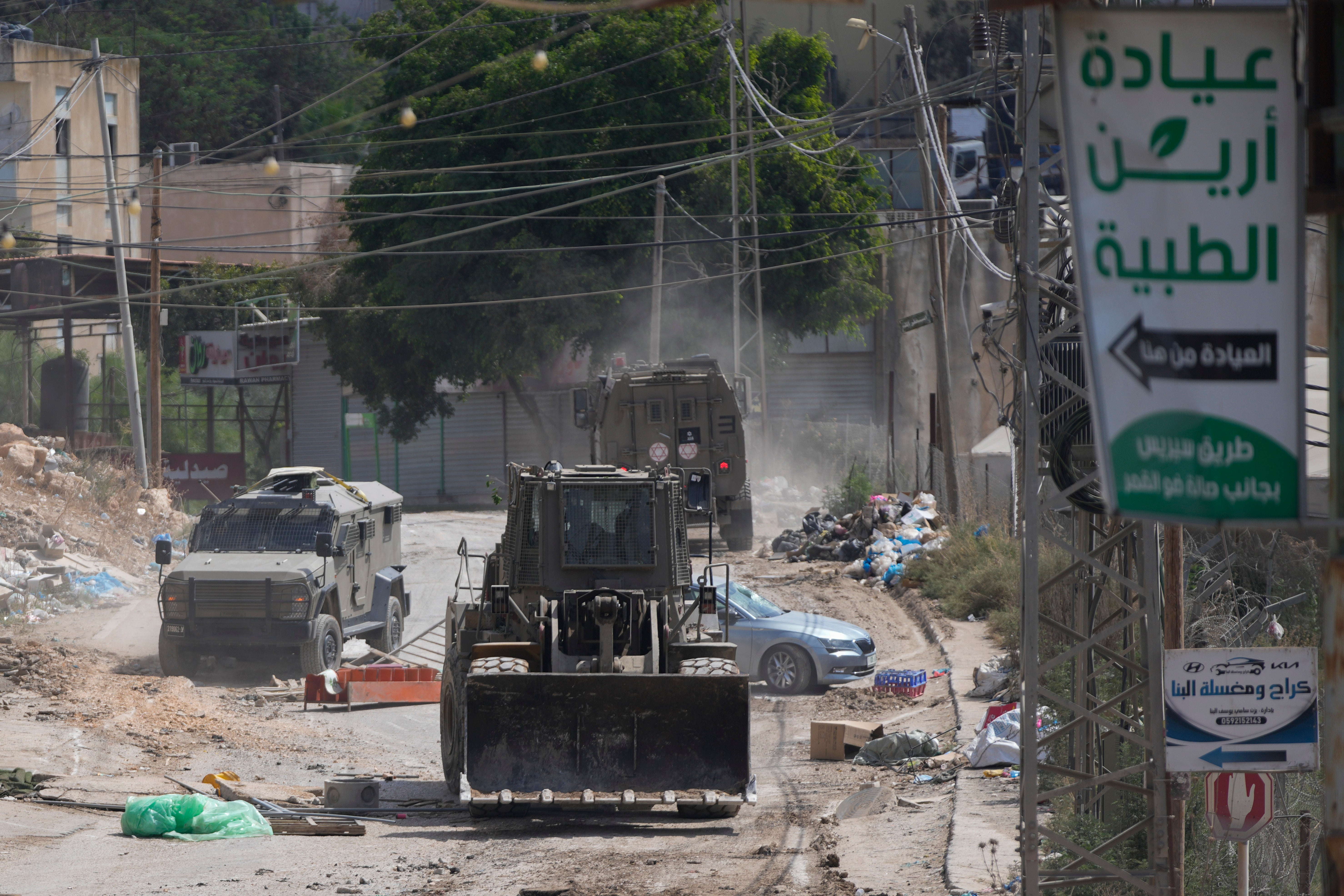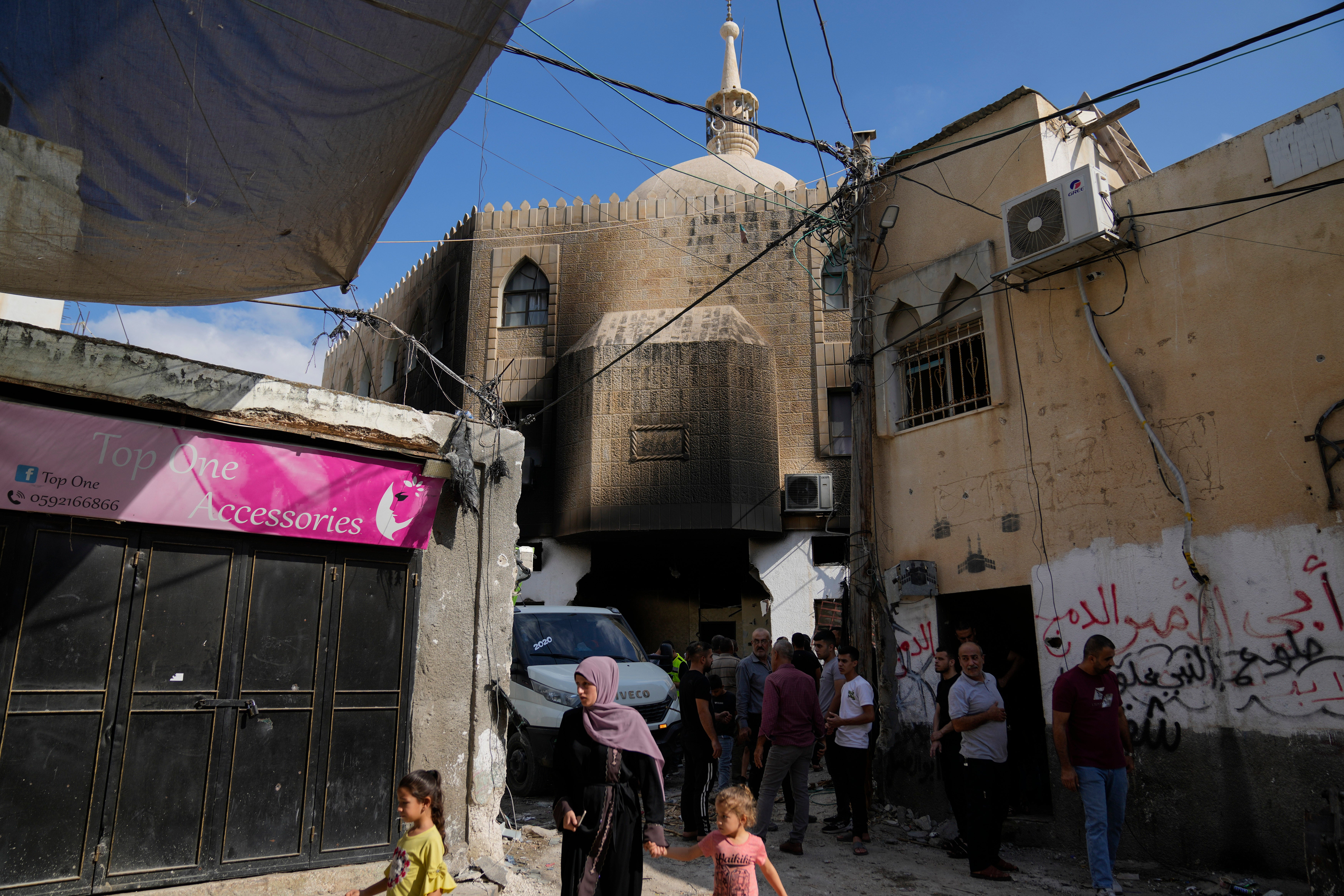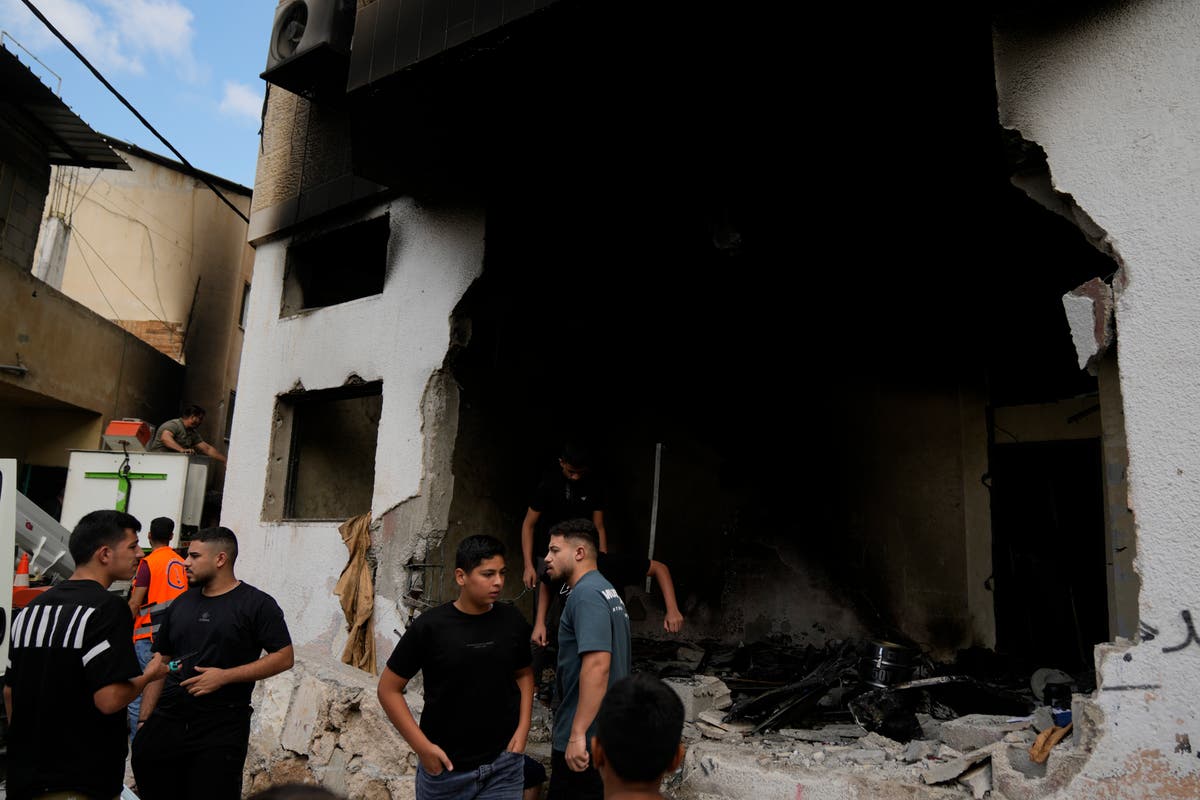Israel has said it has killed five Palestinian militants – including a commander of Islamic Jihad – during a second day of raids in the occupied West Bank.
It comes after at least 10 Palestinians were killed in the West Bank on the first day of what Israel calls a major counterterrorism operation. The Palestinians see the raids as a widening of the Israeli war against Hamas inside Gaza aimed at perpetuating Israel’s decades-long military rule over the territory.
Islamic Jihad confirmed that Mohammed Jaber, known as Abu Shujaa, was killed during a raid in the city of Tulkarm. He was previously reported killed in an Israeli operation earlier in the year, only to make a surprise appearance at the funeral of other militants.
The Israeli military said he was killed early on Thursday along with four other militants in a shootout with Israeli forces after the five had hidden inside a mosque. It said Abu Shujaa was linked to numerous attacks on Israelis, including a deadly shooting in June, and was planning more.
The military said another militant was arrested in the operation in Tulkarm, and that a member of Israel’s paramilitary Border Police was lightly wounded.
Tulkarm is one of four areas in the occupied territory that Israeli media say could be the scene of a days-long operation. The UN Human Rights Office said the Israeli military’s operation in the West Bank was being conducted “in a manner which violates international law and risks further enflaming an already explosive situation”. Israel insists that its forces are targeting “terror groups and terror cells”.
The West Bank raids have been met with condemnation from the head of the United Nations, Antonio Guterres. The UN secretary general described the latest developments as “deeply concerning” and called for Israel to stop. In a post on X/Twitter, Mr Guterres said: “I strongly condemn the loss of lives, including of children, and I call for an immediate cessation of these operations.”

The overall death toll would make it the deadliest Israeli operation in the West Bank since the bloody attack inside Israel on 7 October by Hamas that triggered the war in Gaza. Some 1,200 people, mostly civilians, were killed in that attack, with another 250 people abducted. Israel believes more than 100 hostages are still inside Gaza, around a third of whom are believed to be dead.
Israel’s Gaza offensive has killed more than 40,000 Palestinians, according to health officials in the Hamas-run strip. Around 90 per cent of Gaza’s population has been displaced, often multiple times, and Israeli bombardment and ground operations have caused vast destruction.
The Palestinian Health Ministry says more than 650 Palestinians have been killed in the West Bank since the start of the war. Many appear to have been militants killed in gunbattles during Israeli operations like this one, but civilian bystanders and rock-throwing protesters have also been killed, and the territory saw a surge of settler violence. Israel says the operations are required to prevent attacks on its citizens, which have also risen since the start of the war.
Israel captured the West Bank, the Gaza Strip and east Jerusalem in the 1967 Mideast war, and the Palestinians want all three territories for their future state. The three million Palestinians in the West Bank live under Israeli military rule, with the Western-backed Palestinian Authority administering towns and cities. More than 500,000 Jewish settlers, who have Israeli citizenship, live in well more than 100 settlements across the territory that most of the international community considers illegal.
The situation in the West Bank has also drawn concern from the EU’s foreign policy chief, Josep Borrell, who said the raids and rhetoric from leading Israeli politicians “threatens to fuel further instability”.

He also said on Thursday he had started the process of asking member states if they want to impose sanctions on “some Israeli ministers”.
Mr Borrell did not name specific people but said the sanctions would be for “hate messages” against Palestinians that he said broke international law. In recent weeks he has publicly criticised security minister Itamar Ben-Gvir and finance minister Bezalel Smotrich for statements he has described as “sinister” and “an incitement to war crimes”.
Palestinian president Mahmoud Abbas cut short a visit to Saudi Arabia to “follow up on the latest developments in light of the Israeli aggression on the northern West Bank”.
The operation is one the largest in the territory since the Palestinian uprising known as the second intifada ended in 2005.
Palestinians in Gaza were waiting to see if there would be a pause in fighting to allow a polio vaccination campaign to begin. The UN is preparing to vaccinate an estimated 640,000 children in Gaza, where the World Health Organisation confirmed last week that at least one baby has been paralysed by the type 2 poliovirus, the first such case in the territory in 25 years.
The UN, which called for a humanitarian truce earlier this month, hopes to begin the vaccination campaign on 1 September, said Juliette Touma, communications director of the UN Palestinian refugee agency, UNRWA.
Israeli prime minister Benjamin Netanyahu has denied media reports Israel is preparing for a generalised humanitarian truce, saying that a more limited plan had been presented.
“These are not pauses in the fighting to administer polio vaccines but only the allocation of certain places in the Gaza Strip,” he said in a statement.
Reuters and Associated Press contributed to this report

